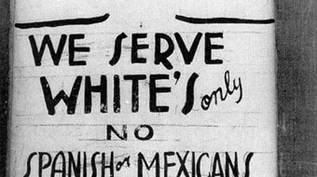 Photo: 12news Photo: 12news I’ve taught freshman composition courses for almost two years now, expecting my diverse body of students from multicultural backgrounds to all coalesce and perform to one standard above all others: White Vernacular English (WVE) or White American Vernacular English (WAVE). As writers, we pride ourselves on being open-minded yet authentic, and we hope our students do the same—as long as they adhere to what we consider valid style of writing. Why have the rigid, outdated principles the foundation of college composition was built on not shifted to accept other vernaculars? For discussion in my classes, I use literary theorist Stanley Fish’s “What Should Colleges Teach?” published in the New York Times, along with two responses by Vershawn Ashanti Young--“Should Writers Use They Own English” and “Your Average Nigga.” I complement these with some of my own students’ work. In “Your Average Nigga,” Young discusses a student named Cam who, when writing on the disconnection between literacy and black culture, wrote this for his thesis (along with Young’s input): C: “’Your average nigga is given 5 words at birth” I wish my black students were so brave, but facing a white professor freshman year in college, they have been conditioned throughout their education on when and where to push their luck. They want to succeed, and since adapting their normative use of language has been presented as necessary, then my black students modified their voices to fit the old white scholars before them. The early education system determines many black students’ educational identity for most of their lives. Young deals with his alienation from the black community as a teenager who preferred plays over playing sports and wanted to learn in school instead of on the “streets.” He also received the same treatment from the white community and asked himself “which race wants me?”  Photo: Slideshare, Mustafizur Rahman Photo: Slideshare, Mustafizur Rahman If I give a student a C on an essay because his ideas are well-thought, but the language barrier he bridged dislocated his writing style and caused incoherence in those ideas, am I to blame, or is academia to blame? I don’t preach beforehand that my classroom is open to all colloquialism or idiomatic writing; I don’t because I assume my black students will come in and know they are expected to use White Vernacular English, that they too will be stuck in between races, wondering if they should be free to write as someone else, or free to fail as themselves. Do these old white scholars recognize that their perpetuated standards in academia are creating an imbalance in multicultural students? Do they care? Plainly, I can say that they don’t. And what’s even worse, my students aren’t aware of this conversation. They at least deserve that respect—to hear our voices concerned for their own. I became concerned for their own voices after seeing some of my young black students’ toned down writing. For example, Student 1 (whose name will be withheld) wrote, “I have two genres of Rap music soft rap playlist and I also have a savage playlist. It depends on my mood […] However, if I want to put deep emotion into my writing and show a more serious type of side to me I will put on harder rappers such as Young Pappy and French Montana to get me more in a serious and a slightly angry mood to put the serious tone in.” This “angry mood” is what Young says gives his black writers voice that his white students often met with disbelief and longing. It’s what I was looking for, but not what I received. This watered-down version struck me as impassionate and inauthentic, but it’s what I taught. Teaching WVE was so easy for me, as is perpetuating the standard in composition classrooms. As I became more aware of the problem, I wondered why no action had been taken to rectify WVE’s grasp on academic writing. How could I hope for students to locate their identities as writers through their work if I had them leaving their identity behind to write in the first place? As a collaborative group of people working towards helping college students build upon their prior knowledge, we set them up to fail, and even worse, we know we are. An attempt to standardize a blend of WVE with student’s natural voices has been considered, known as Code Switching, but this has been met with resistance. Conversations are had, but no mandated defamiliarization of WVE in our systematic approach to teaching it has been incorporated. We are writers; teachers that offer nurturing guidance, whose students should step into our field knowing they won’t face discrimination here, like everywhere else. Ending the perpetuation of WVE in college composition is a small step in the right direction.
1 Comment
2/9/2022 02:57:51 pm
This is a great article about a topic that deserves way more attention! My thought about the education around formal writing is that anything in writing is recorded amd can be used as evidence. in America, the most litigious country in the world plausible deniability which is at the heart of white vernacular american english is what runs the entire government. Its the way the entire legal system works. I don’t think it will ever change as the standard because of the nature of the law in this country. It should but I cant see a way of that changing unless the entire judicial system is overhauled. Which is even more needed in my opinion.
Reply
Leave a Reply. |
Archives
July 2024
Categories
All
|
|
Glassworks is a publication of Rowan University's Master of Arts in Writing 260 Victoria Street • Glassboro, New Jersey 08028 [email protected] |
All Content on this Site (c) 2024 Glassworks
|

 RSS Feed
RSS Feed
